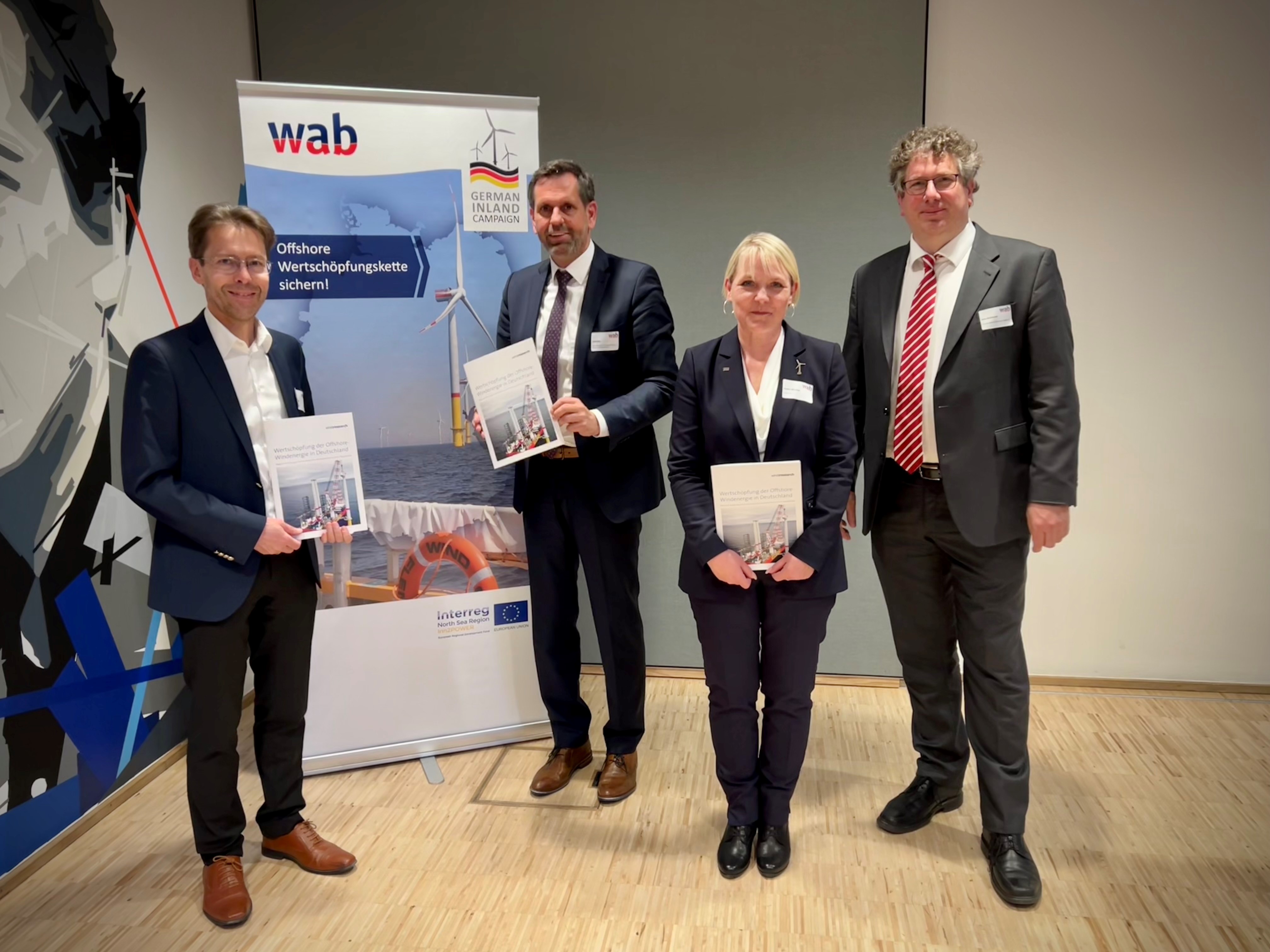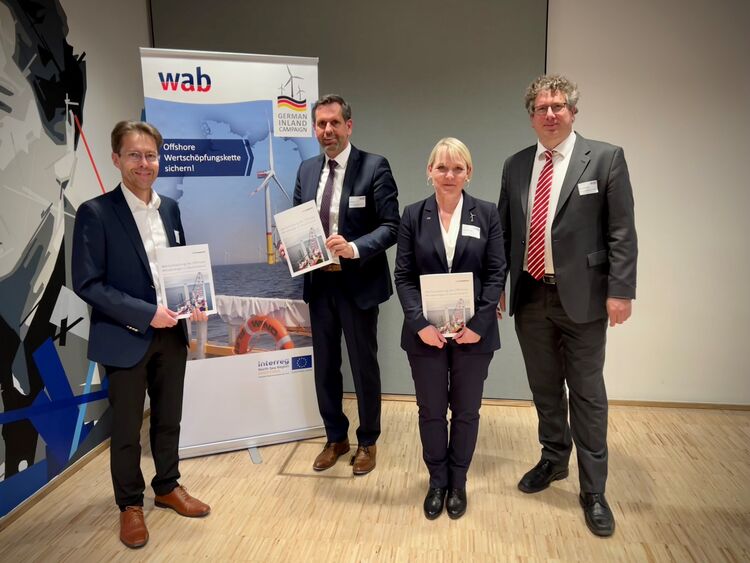These are the findings of a recent study by the trend and market research institute wind:research on the added value of offshore wind energy in Germany, supported by WAB, PNE, Amprion, TenneT, Deutsche Windtechnik, Rhenus Logistics, IG Metall, Iberdrola, and Buss Energy Group.
Even with the increased expansion targets, the situation in the German supply chain remains tense for the time being due to the current lull in orders. "The expansion to at least 70 gigawatts of offshore wind by 2045 can only succeed if the right course is set now in terms of employment and for the maritime industry. It's about investments that do justice to the ambitious goals," WAB Managing Director Heike Winkler commented on the results of the study. Ideally, tens of thousands of jobs can be created across Germany if the framework conditions make this possible. "We need an overall effort by the wind and maritime industry with a qualification and training campaign," said Winkler.
The lack of expansion in recent years has left clear traces in the value chain. "For the German government's long-term expansion targets of at least 70 gigawatts of offshore wind by 2045, we need immediate investment and the right political course to create the infrastructure necessary for expansion, including in the area of ports and shipyards. The value chain must be rebuilt," said the WAB managing director.
According to the study, 862 market participants are currently active in the wind energy sector, 23.8 percent of them exclusively in offshore wind energy. While the number of market participants has increased, the specialisation of the companies involved has decreased by 10 percentage points since 2019. Currently, the supply chain is no longer complete, for which the areas of tower and platform construction as well as companies in the areas of installation logistics and special shipbuilding are missing. Corresponding bottlenecks in the entire supply chain must be remedied immediately, for example in the areas of sensor technology and semiconductors as well as installation logistics.
For the implementation of the federal government's plans, the need for skilled workers is rising sharply. The attractiveness of jobs, especially their long-term security, should therefore be strengthened. "If electricity generation and hydrogen production at sea offer secure employment, it will also gain further acceptance, which will be strengthened by an energy transition roadmap that is comprehensible to the population," Heike Winkler said. "In order to provide the numerous small and medium-sized enterprises in particular with a basis for investment decisions, we need the new Wind Energy at Sea Act to come into force quickly," Winkler added. "Qualitative tender criteria in the Wind Energy at Sea Act can be a valuable support for the reconstruction of the supplier industry," said the WAB managing director.
"We have been calling for political dialogue for a sustainable development of wind-at-sea supply chains in Europe for a very long time. Value creation and employment are essential aspects for all offshore wind developing countries. National value-added targets cannot be the solution here. The offshore wind industry has been an international industry since the early days of offshore development. To be able to quickly produce electricity and green hydrogen efficiently at sea, we have to cooperate across national borders," says Winkler. "With the steadily growing demand for climate-friendly energy, the demand for offshore wind is also increasing internationally. In order to be able to leverage the export potential and realise the national expansion targets, this dialogue is imperative," added the WAB Managing Director.
The international WINDFORCE Conference 2022 from 20-22 June in Bremerhaven (www.windforce.info) offers a good platform for the urgently needed exchange.
Link to the study (in German): https://bit.ly/offshorewind-wertschoepfung
Photo: © WAB e.V.
In the picture: Dirk Briese (wind:research), Olaf Lies (Energy Minister of Lower Saxony and current Chairman of the Round Table of Energy Ministers of the Federal States), Heike Winkler and Jens Assheuer (WAB e.V.)
About WAB e.V.
Bremerhaven-based WAB is the nationwide contact partner for the offshore wind industry in Germany and the leading business network for onshore wind energy in the north-west region. The association fosters the production of "green" hydrogen from wind energy. It comprises some 250 smaller and larger businesses as well as institutes from all sectors of the wind industry, the maritime industry as well as research. www.wab.net

